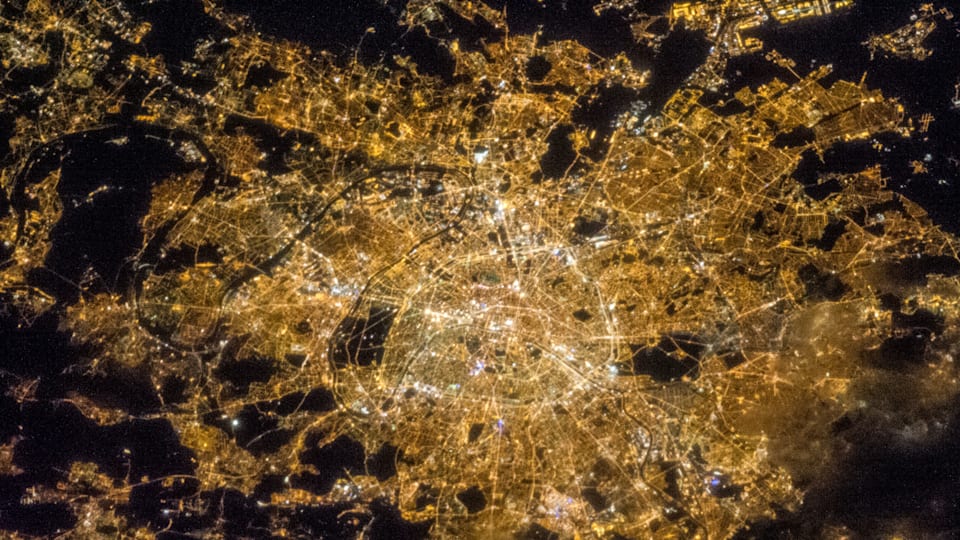Astronaut Olympics takes place on International Space Station during Paris 2024

The slight figure of Tracy Caldwell Dyson, blue headband in place, hair flying wildly behind and above her, grabbing a weightlifting bar with pain etched on her face is not such an unusual spectacle at an Olympic Games.
Two full-grown men hanging off each end of said bar is slightly more unexpected.
But this was 'Olympic Games' astronaut style.
Astronauts on the International Space Station (ISS) took time out from their working day, inspired to take part in their own Olympic Games after passing more than 400km (250 miles) above Earth and eyeing a stunning view of France's capital where all the real action is currently taking place at Paris 2024.
A plastic table enabled a bit of pommel horse action although not quite of the level of Ireland's Rhys McClenaghan who qualified top on the apparatus at the Bercy Arena in Paris on Saturday (27 July), or Team GB's Max Whitlock who is eyeing a fairytale ending to his career by making Olympic history.
Should the two-time Olympic champion win a medal on pommel horse, he'd become the first gymnast - male or female - to win four medals on the same apparatus. Whitlock and McClenaghan will be two of eight gymnasts vying for a podium place in the final on 3 August.
Meanwhile, a shot put is thrown through the core of ISS by Butch Wilmore, replicating a similar challenge that actually does take place for astronauts on the ISS.
"The challenge is, to be able to throw (an American football) from the Russian segment all the way down to the front of the American segment, and that's about the length of a football pitch," British astronaut Tim Peake told Olympics.com exclusively in April, when discussing what it was like to run a marathon in space. "And to try and throw it without hitting any of the walls."
The athletes on the ground have no such difficulties with obstacles created by walls, but have the disadvantage of a rather heavier object to hurl.
Let the games begin!
— NASA (@NASA) July 26, 2024
Athletes from across the world are gathering today to kick off the 2024 #Olympics – pushing boundaries and inspiring generations. If you were an Olympic athlete, which sport would you play? pic.twitter.com/mnFC3vpvly
Simone Biles in space?
Hydration is also somewhat easier for the astronauts, who can drink liquid that floats in the air. Cyclists and marathon runners might want to look at adopting this at future Games instead of grasping for a water bottle from their coaches roadside while travelling at pace in a jeopardous grab.
One thing the earthling athletes cannot match is the speed of the astronauts, who circle Earth every 90 minutes. However, if it's a matter of height, should they look out the porthole they might just see one Simone Biles still going stratospheric after her sky-high vault on Sunday.
At the conclusion of the ISS Olympic Games, astronaut Matt Dominick had some words to close.
"Over the past few days on the International Space Station, we've had an absolute blast, pretending to be Olympic athletes," he said. "We, of course, have the benefit of weightlessness. We can't imagine how hard it must be to be a world-class athlete doing your sports under actual gravity.
"So, from all of us on the International Space Station to every single athlete at the Olympic Games, God speed."